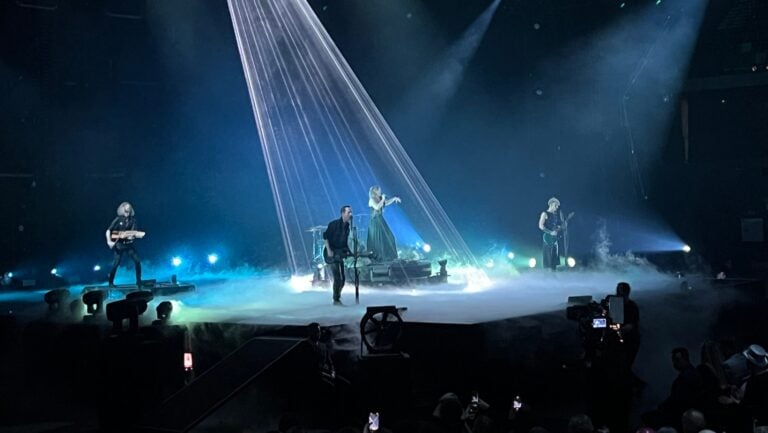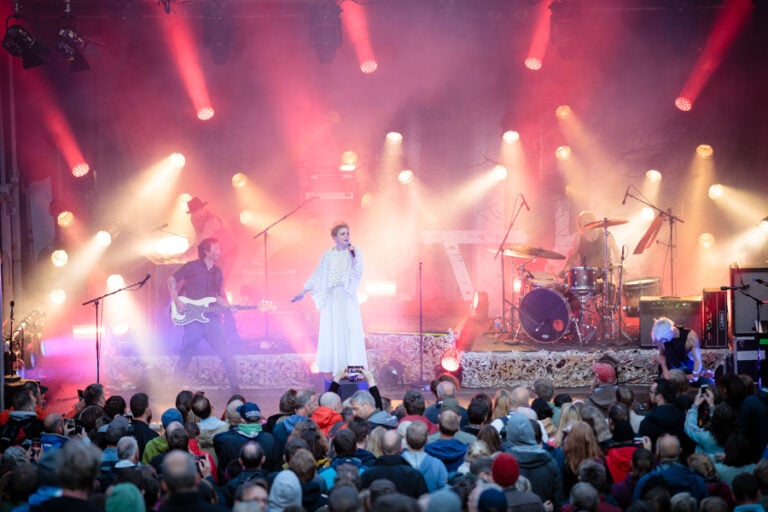Norway's progressive folk-rock band Gåte will represent the country at the 2024 Eurovision Song Contest following their victory in the Melodi Grand Prix. For the first time in many years, Norway’s entry will be in Norwegian.
Yes, it's that time of the year again! Held since 1956, the annual event sees Europe gets together and celebrate all things pop music. Famous for its extravagent performances, Eurovision is one of those love-it or hate-it events.

So, why is that time of the year here when it doesn’t happen until May? Because countries are busy selecting their artist and song for the contest, Norway included. And at this year’s Melodi Grand Prix, Norway sprung a surprise on Europe.
Eurovision 2024: Ulveham By Gåte
Let’s get straight to it and introduce the song that will represent Norway at Eurovision 2024. The big surprise here is that it’s in the country’s native language, a relatively rare thing at modern Eurovision where English lyrics dominate.
The song draws inspiration from a medieval ballad and, similar to other historical tales, conveys a moral lesson. It narrates the tale of a young maiden facing numerous injustices. Here is “Ulveham” by Gåte:
Despite the challenges, she remains steadfast in her commitment to justice and virtue. Through her unwavering dedication to these principles, she overcomes malevolent forces and lifts the curse that had been cast upon her.
‘Ulveham' was written by Gunnhild Sundli, Jon Even Schärer, Magnus Børmark, Marit Jensen Lillebuen, Ronny Graff Janssen, and Sveinung Eklo Sundli.
The win surprised many Eurovision watchers across Europe, who had expected KEiiNO to make a return to the big stage. Despite winning the international jury vote, KEiiNO fell short in the Norwegian public vote, which had a heavier weighting.
Introducing Gåte
Established in Trondheim in 1999, Gåte is far from a typical Eurovision band. Known for melding Norwegian folk music with elements of metal and electronica, Gåte’s music is perhaps best summed up as ‘progressive folk rock.’
The gothic elements to some songs together with strong female vocals from Gunnhild Sundli often see some fans of Evanescence drawn to Gåte, but the two bands are very different.
Gåte use classical instruments such as violins together with guitars and drums, and are known for rearranging old Norwegian folk tales. Many of their songs are written in Nynorsk and sung in the Trøndersk dialect of central Norway.

Following their win at MGP, it wasn't certain that Gåte would participate in Eurovision due to their voiced concerns over Isreal. However, the band has since confirmed it does intend to represent Norway in Malmö this May.
How Will Gåte Do At Eurovision?
Since their debut in 1960, Norway has participated in Eurovision 61 times. They have won three times, but finished last on 10 occasions. So, how will Gåte do with Ulveham?
It's a common belief amongst casual Eurovision watchers that non-English songs will not do well. But as Eurovision itself has said, that's not always the case at all.
However, most bookmakers give Norway an outside chance of triumphing at Eurovision. At the time of writing, odds of between 20/1 and 25/1 are available. This is sure to change though as a lot of countries are still to declare their song.
Although Gåte may not compete for the hearts of Eurovision fans across Europe, the song may do well with the juries. It's also likely to be one of the more distinctive songs performed at the main event, if it qualifies for the final.
Norway’s Melodi Grand Prix Explained
MGP plays a crucial role in the Eurovision calendar as it serves as the national selection process for Norway's entry.
Established in 1960, MGP is a music competition organized by the Norwegian broadcaster NRK. It selects the country's representative for the Eurovision Song Contest through a series of heats, semi-finals, and a grand final, with the structure changing often.
Over the years, MGP has been a launching pad for Norwegian artists to gain international recognition.
Are you a fan of Gåte? What do you think of ‘Ulveham'? Let us know in the comments.


I need someone to tell me the legend upon which the song is based. In English, please.
Chris, I recommend to look into lyricstranslate, they to good song translations
I love Gåte and this song. I believe that too often entries are too popish so that they appeal to the judges and the public.
I am also a fan of Gåte, and I cross my fingers for them in the contest, tomorrow. Like Wardruna, Aurora Eivør and many others they surprise with their lyrics, voices and compositions. They show that Norwegian with all its dialects, OldNorse, or even Faroese, are beautyful and impressive languages, as well 🙂